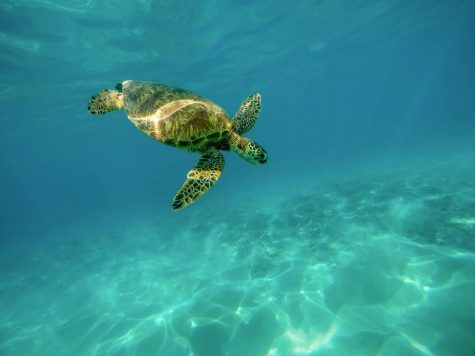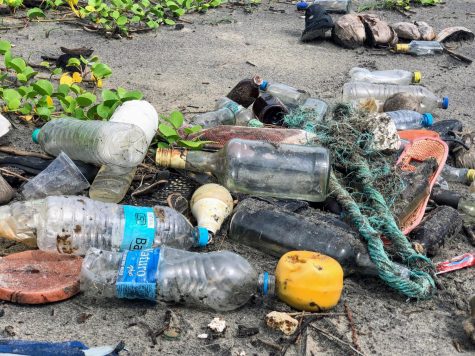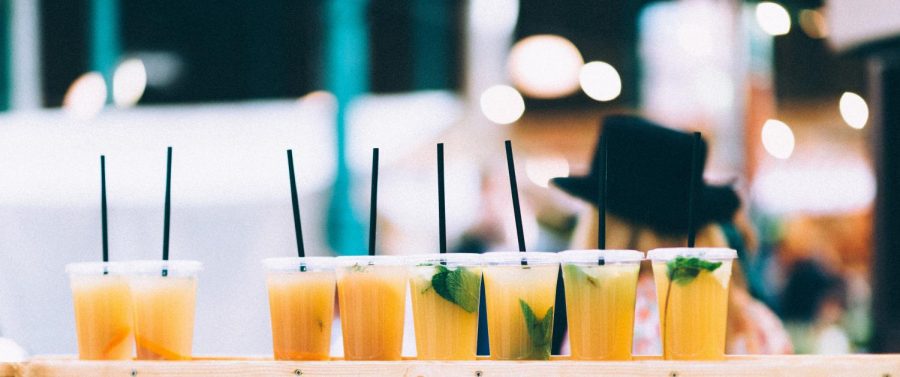Portland Votes to Restrict Plastic Straw Use: Is This the Right Move?
November 28, 2018
On Nov. 14, 2018, the Portland City Council voted to limit the availability of plastic straws. This decision means that, starting in July 2019, the people of Portland are going to have to train themselves to ask for plastic straws when eating at restaurants, bars and other food establishments.
This isn’t the first time Portland has voted to try to limit pollution. It has had a restriction on Styrofoam containers that has been in effect since 1990, and even added a plastic bag ban in 2011.

Photo by Jason Briscoe on Unsplash. Used with permission.
Straws are so ingrained in our culture that bartenders and waiters are trained to automatically give straws to customers. Starting now, that will no longer be allowed. For example, if you are at a restaurant and you want a straw, then you’ll need to ask your waiter for one. The state restaurant and lodging lobby representatives even endorsed the ruling to limit the use of plastic straws.
However, Portland isn’t completely banning the use of straws, due to concerns for people with disabilities who need straws because of injuries or for other reasons.
I think that this is a good first step for reducing waste in America. Taking action, even with something as simple as straws, will make a difference over time.
Companies have been taking action as well. Starbucks has already moved to a policy of straws-by-request, and is hoping to get rid of straws completely by the year 2020.
Just this weekend I was at the Rosswood Restaurant in Portland, and they had already started to only give straws out by request. Soon, this will be happening all over Portland.
Personally, I don’t see this as far enough. Plastic straws are a part of the plastic waste problem, but not the only culprit. Plastic bottles, bags, and other trash are huge issues that have yet be to resolved.

Photo by John Cameron on Unsplash. Used with permission.
Plastic waste has always been prominent in America, but recently a big campaign that has brought this to the public’s attention is the save-the-turtles movement. The Washington Post illustrates one example of the issues that straws can cause, showing a video of marine biologists who find a wild sea turtle with a straw lodged in its nostril, as well as the removal. Even this small action of limiting straws will help prevent plastic waste from getting into rivers and ending up in oceans.
Too many people still don’t realize or even know about the effect that plastic waste really has on the environment. It is a serious issue that leads to the endangerment of our marine life.
The Ocean Conservancy’s Top Ten Collected Items list has straws on it as the fifth most found item. It’s estimated that Americans use around 500 million plastic straws a day; these almost always end up in a landfill, or in the ocean. It is estimated that, by the year 2050, there will be more straws in the ocean than fish if we don’t start to make some drastic changes.
Plastic waste ends up in the ocean mainly by human error. For example, leaving plastic trash on the beaches is terrible for marine life because it almost always finds a way into our large bodies of water. If you’re ever at the beach, make sure to pick up your trash, or any trash you see that someone else left behind. It will make a difference to the marine life. The trash that falls in the gutters and drains that we walk by eventually ends up in the ocean.
That is why littering is such a big concern. Straws are one of the most commonly littered items in America, because people don’t understand the negative effects of their laziness. If you just take the time to properly dispose of your trash it will make a difference; or, even better, don’t use plastic straws at all, and just go without.






Alex Fiedler • Nov 29, 2018 at 9:23 pm
I have mixed feelings about the movement to limit/ban plastic straws. While plastic pollution in oceans is a serious issue and limiting plastic straw use will no doubt save the lives of marine animals, plastic straws make up only 0.03% of the total mass of plastic pollution in the ocean. The movement to limit plastic straws was started by viral, emotionally touching photos, and, in my opinion, it is a form of pseudo-environmentalism. When we choose not to use plastic straws, it is natural to feel as though we’ve “done enough,” when in reality, it does close to nothing in terms of changing the direction our planet is headed. We should not become complacent! Also, we should not let politicians and corporations blame individuals for environmental problems while they repeatedly fail to make the larger changes needed to save our planet.
Gavin J. Olivera Sunderland • Nov 29, 2018 at 2:25 pm
Meggie, I am aware that the topic of the article of the legislation thereof. However, my comment was one regarding a ban on straws. Frankly, I think that Portland’s response is acceptable and not agressive or excessive.
Meggie Perkins • Nov 29, 2018 at 11:55 am
Gavin, you misunderstood the article. Portland is not banning straws, but restricting them. It is the choice of the individuals to use a straw or not. Rather than automatically being given a straw, all you have to do is request one. I have accepted my obligation by requesting No STRAW, although countless times a straw has still been given to me. This restriction actually takes away the current frequency of straws in drinks, therefore lifting the force on the consumer.
Gavin J. Olivera Sunderland • Nov 29, 2018 at 10:28 am
I feel that the state does not have the moral authority nor the logistic capacity to ban plastics straws or truely any item for that matter. Prohibition on items has proved to be unsuccessful and I feel that soon enough the city of Portland will experience this failure in their attempt to control the populace. However, I do support the unuse of plastic straws. Though, I feel it is an individual’s obligation to act for themselfs and choose what they feel is unresponsible to purchase, in this case plastic straws.